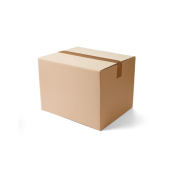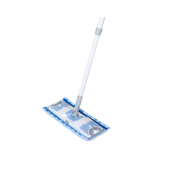Introduction:
Controlling expenses and optimising procurement procedures are essential for growth and profitability in a complicated corporate environment. Organisations seeking to improve financial supervision and procurement efficiency might benefit from automated expenditure analysis. Businesses may better understand their spending habits, estimate future expenditures, and control supplier performance by using big data analytics and modern technologies. Automated spend analysis may alter procurement methods and provide companies a competitive edge in a changing market.
Cost Visibility in spend analysis
The most evident benefit of automated expenditure analysis is better spend understanding.
It takes time and money to get expenditure visibility, but once you do, cost reduction possibilities are easy to spot.
Organisations may discover procurement cost patterns, particularly overspending areas, and modify to strategic sourcing.
Improving expenditure visibility helps plan and maintain inventory levels while obtaining the best supplier pricing and discounts.
By making orders at the proper moment, your company may lock in low pricing during low demand rather than pay higher rates due to growing demand.
Improved Spend Forecasting
Forecasting spend benefits numerous teams in an organisation. Finance and planning can utilise the data to estimate future spending based on recurrent vendor spend to plan for months or years.
With the data, sourcing teams may assist department heads anticipate spend for their most significant categories and vendors.
Better supplier performance management in spend analysis
Supplier performance insights help strengthen supplier relationships and promote proactive development. Companies may easily identify underperforming vendors using automated expenditure analysis. With continual pricing monitoring, they can increase contract compliance.
Scorecards help evaluate suppliers and vendors by tracking performance.
Comprehensive spend analysis shows how much your company spends with each supplier on products and services and which suppliers get the most business.
This expenditure data is useful in contract negotiations since it helps organisations maximise their procurement budget.
When executed successfully, firms may work with fewer suppliers for more value, streamlining procurement.
Buyer and supplier gain from spend analytics. Instead than fighting for tiny gains during contract negotiations, both sides may focus on their broader aims.
Manage Risk and Uneven Spending
Maverick spending occurs when workers buy from non-approved sources. It impacts earnings and contract compliance and fulfilment.
Increased expenditure visibility is the only method to identify maverick spend. Comprehensive spend analysis, including tail spend analysis, is needed to detect all mismanaged expenditures. Accountability helps pinpoint the source of faults and fix them.
Aligning sourcing and competitive strategies frequently begins with expenditure analysis in procurement. Organisations may use buying power to cut costs, enhance operational performance and supplier management, and strengthen relationships with internal and external stakeholders when done appropriately.
Most modern expenditure analysis technology offers ERP cloud-native setups with real-time spend reporting to simplify the process. Analytics tools simplify data and cost management.
Since procurement transformation is making procurement and cost management more complicated for many businesses, spreadsheets and accounting analytical tools are no longer sufficient. Procurement teams who don’t leverage automated technologies throughout the supply chain are lagging behind and making things worse.
Companies, from healthcare to food and beverage, must buy raw materials and supplies to manufacture a product and office and breakroom supplies to keep employees happy and healthy.
Advanced analytics and artificial intelligence solutions like Planergy help track money and plan ahead.
Procurement is only going to grow more difficult, so the greatest companies know where every dollar goes and organise their purchases by time, necessity, and price. Automated expenditure analysis helps procurement teams stay on track.
Conclusion:
Automation of expenditure analysis is a game-changer for firms looking to improve procurement and finances. Cost visibility, expenditure forecasts, and supplier performance help organisations make better decisions, cut expenses, and streamline processes. Advanced analytics and AI help organisations control spend and stay competitive. Businesses seeking financial management and growth must use automated expenditure analysis solutions as procurement difficulties increase.
















